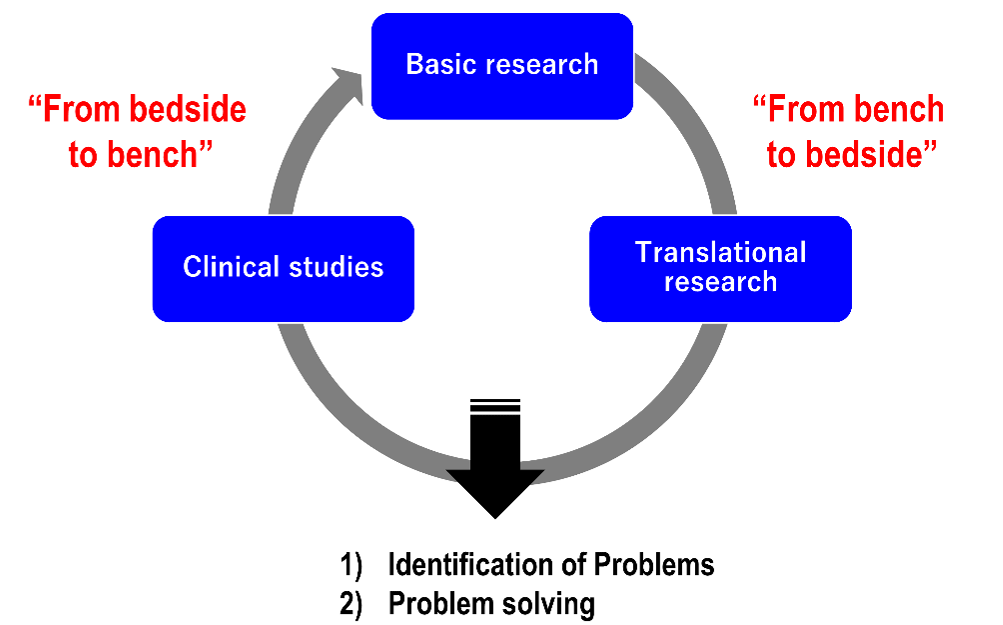Basic Policy
-Immunology originated from the need to fight against infectious diseases, and our research is aimed at ultimate cures against cancer and infectious diseases. -The laboratory focuses on the immune system.
We focus on the role of dendritic cells, which are the epicenter of immunity, to elucidate the chain mechanism linking innate, acquired, and memory immunity, and to study immune abnormalities and disorders in disease pathology. Simultaneously, based on the findings of basic research, we are promoting research on the prevention and treatment of intractable diseases, such as cancer and infections. We aim to identify problems and solve them through a cycle of "From Bench to Bedside" as translational research and "From Bedside to Bench" as reverse translational research (Figure 1).
The immune system can recognize self- and non-self-antigens, and therefore, protects against bacterial and viral infections, including severe acute respiratory syndrome coronavirus 2 (SARS-CoV-2) infection, as well as cancer. Moreover, the immune system is tolerant to self-components and maintains homeostasis in the body. Cancer occurs when normal cells are genetically altered and begin to grow uncontrollably. Since cancer cells are derived from normal cells, the two are indistinguishable; hence, the immune system's ability to recognize and eliminate cancer cells as foreign materials is not fully functional. Once the immune system erroneously recognizes cancer cells as self-constituent components, these cells can evade attack by the immune system. The immune system surveillance progressively weakens by the accumulation of cancer-related genetic mutations and the heterogeneity of cancer cells. Although initially recognized and eliminated by the immune system, less immunogenic cancer cells are gradually selected and survive, eventually acquiring immunosuppressive mechanisms and evading the immune system surveillance, resulting in “cancer immune editing”. To predict the relationship between immunity and cancer progression or the efficacy of cancer therapies, such as immune checkpoint inhibitors, and to develop new therapies, it is necessary to analyze and unravel the complex relationships among the tumor microenvironment, lymphoid tissue, and cancer cells, as well as among various immune and non-immune cells (such as blood vessels, lymph vessels, and fibroblasts). Earlier, the analysis of a single cell or molecule was limited; however, technological innovations in hardware and software over the past decade have made comprehensive analysis and simulation possible. The laboratory of immunotherapy is conducting research using new analytical methods while focusing on biological evidence.

